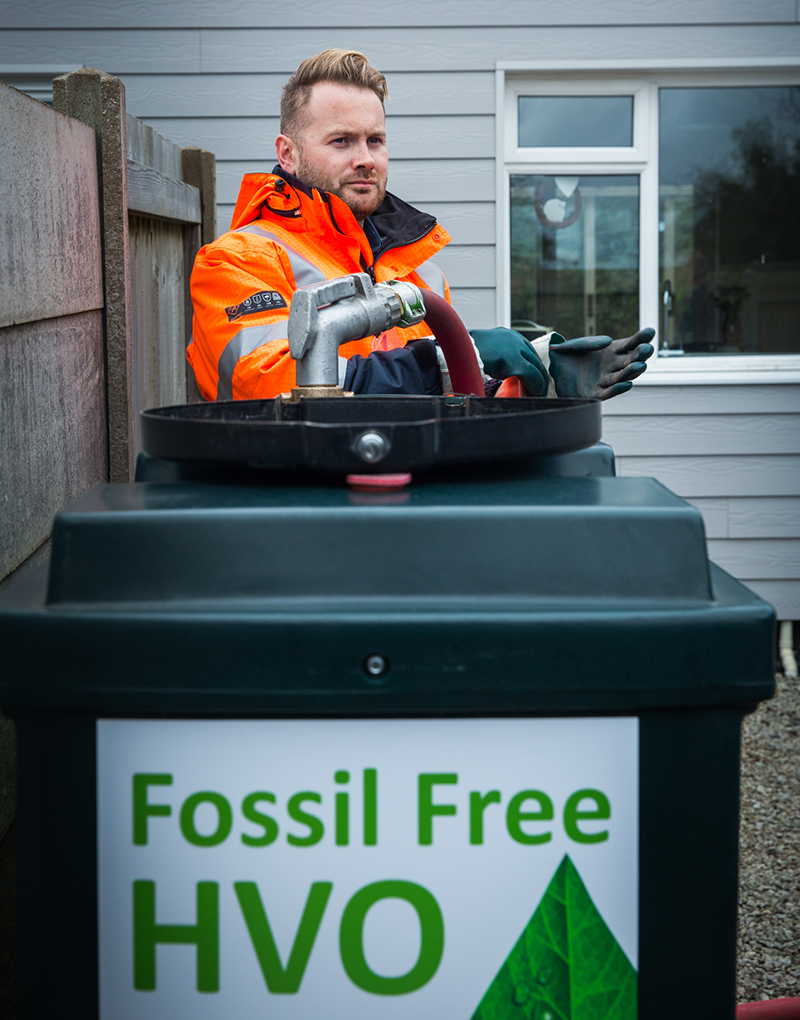
Early results from UK wide trials of a renewable alternative to kerosene suggest that the new liquid fuel works in virtually all existing oil heating systems with only simple modifications, while reducing carbon emissions by almost 90%.
19 sites across the country are now running Hydrotreated Vegetable Oil (HVO) in a range of heating and cooking appliances in both domestic and commercial settings. The fuel is made from fossil free, sustainable waste materials and certified via the International Sustainability and Carbon Certification (ISCC) scheme.
Each HVO installation is monitored regularly and, to date, the systems have performed well with no significant issues reported.
The trials are coordinated by OFTEC and the UK and Ireland Fuel Distributors Association (UKIFDA), with each of the current sites run by members including Watson Fuels, NWF Fuels, Oil 4 Wales, Mitchell & Webber, James D Bilsland Ltd, Crown Oil and EOGB.
OFTEC and UKIFDA plan to expand the project over the coming months and have also applied for government funding to enable a further 100 homes to join the trial for the 2021/22 winter heating season.
OFTEC CEO, Paul Rose, comments: “The initial trial results are highly encouraging and add further evidence to our belief that HVO offers oil heated households an attractive, low cost, low disruption solution to decarbonisation.
“Converting properties from heating oil to HVO is a simple process that costs around £500 compared to the thousands of pounds it currently costs to install a completely new low carbon heating system and the associated fabric improvements required for many hard to treat homes.
“Crucially, at almost 90%, the carbon savings achieved are significant and would enable government’s decarbonisation goals to be met quickly and more cheaply. This solution would also prove far more effective in the high number of distress purchase situations that commonly occur when a boiler needs changing, ensuring customers are not left without heat for long periods.
“Improving the thermal efficiency of UK homes should continue to be the goal, but in cases where the cost to achieve this is high and the solutions less obvious, a renewable liquid fuel solution would allow customers to carry out the work at a more gradual, cost effective pace. This approach will likely be better received by homeowners.”
Subject to government support, industry aims to commercially introduce HVO for heating in 2022.
Worldwide HVO production capacity is rapidly increasing and forecast to rise by over 300% in Europe and six fold in the US by 2025 compared to 2020 volumes.
UKIFDA CEO Ken Cronin adds: “These trial results provide extremely important evidence that HVO can offer the all-important choice that has been lacking for our customers.
“Alongside a planned extension to the trial, we will need to wait and respond to the up and coming government Heat and Building Strategy consultation where we will be making the case for the use of renewable liquid fuels in our customers’ homes. We will also underline how government can help by putting the right support measures in place for HVO with respect to tax, duty and incentives.
“We are confident consumers will be keen to accept an HVO solution as it overcomes the major cost of change and disruption barriers to decarbonisation that exist for so many households living in older, hard to treat homes.”
OFTEC and UKIFDA are informing consumers about the new fuel through a new information website: www.futurereadyfuels.info














